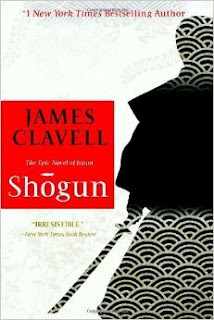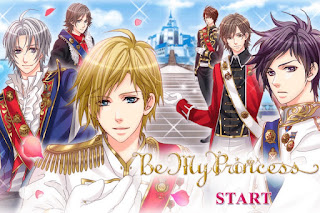Yay or Nay?: Shogun (Novel)
Why is this book so long! It’s like 900 pages! That’s just craziness! Well, I did it. If you recall during our Japan-themed literature month I talked about a potential book I wanted to read, called “Shogun” by James Clavell.
And I got the book for Christmas and I’m finally going to review it! This is a unique book, and it takes its time coming full circle. I’m not sure that I would ever read it’s follow-up sequels, which take place at different times throughout history. I like Japanese history, as I’ve had very limited access to it. So for this novel, it was certainly refreshing to explore a historical Japan, specifically (and very obviously) during the time before Ieyasu Tokugawa, or shall I say in this novel, Toranaga, unified Japan.
The Story
Dutch trading ship captain, John Blackthorne seeks out to discover the “Japans”. In a freak accident, he washes up upon the shore of Anjiro in Japan. Under the care and rather, imprisonment of his captors, he begins to learn the ways of a historical (and warring) Japan, and their customs, under the same “Anjin-San” (Honourable Pilot).
So there’s a lot of stories to cover in these few sentences. Know that right away this summary does not even begin to cover everything in the novel. There were even some plot points and parts I missed simply because they got so lost in the story. There’s, as history is, often messy and overlapping parts but I will give credit that there’s a fairly coherent attempt to organize different parts of the story based on chapter.
The perspective, for the most part, is Blackthorne’s and his adjustment to a different way of living. I remember laughing when one of the biggest issues with him was that he didn’t want to take a bath. It’s historical Europe so I can see why, sure, but I was just thinking “how dirty must you be then?”
No frequent bathing gave me a bad picture.
Historic "Age of Exploration" Europe needs to do that.
My Thoughts
I liked the book. But it’s the length and sometimes endless and pointless conversations would lose me. More than that, the novel, well, I’m not sure it really focuses on Japanese culture at the time, or the history, but rather how well a European can adapt. Seen through Blackthorne’s eyes, you can see much of the beautiful things that make up the Japanese culture, Westernized, or filtered through that specific gaze. Given the perspective, this is unavoidable, but it is a glaring problem throughout.
At the same time, the writing was eloquent, imagery clear and evocative―such as this lovely quote below.
"Anjin-San, forget the village. A thousand million things can happen before those six months occur. A tidal wave or an earthquake, or you get your ship and sail away, or Yabu dies, or we all die, or who knows? Leave the problems of God to God and karma to karma. Today you're here, and nothing you do will change that. Look at this sunset, it's beautiful, neh? This sunset exists. Tomorrow does not exist. There is only now. Please look. Its so beautiful and it will never happen ever again, never, not this sunset, never in all infinity. Lose yourself in it, make yourself one with nature and do not worry about karma, yours, mine, or that of the village."
But the length of a lot of things and the sheer amount of characters and history to tackle made it very hard to either keep track of storylines, or people in general. That’s by no fault of the author, but it did hinder my ability to enjoy the story or pay attention to critical moments. It might’ve also helped to keep the names of certain historical figures―such as Toranaga (Tokugawa) the same. For those wondering the story is loosely based on the life of William Adams, a Dutch captain commanding an English ship when he washed up on the shores of Japan. Beyond that, I don’t know what else is based in fact, but most are fiction.
I really loved the character, Mariko though. She was such a graceful and brilliant woman in a period of time, where at least in Europe, women didn’t have as much opportunity. As another positive, although some of the interesting parts of Japanese culture is diluted through a European lens, there are some positives. You do, as the reader gets to experience this world as it is compared to Europe, and in some regards, there is the acknowledgment of both difference in the cultures, and you do get the opinion and perspectives of both on each. Not only that, but you do get a feeling that there isn’t a sense of superiority from the European side― with the exception of both sides thinking the opposite is “barbaric”. Rather, you’ll see that in a lot of ways, if the novel sticks true to history, Japan was far more advanced in some ways than Europe was at the time. It was interesting to see these perspectives.
My Rating
Difficult to find, difficult to read. But not horrible. Not great either. If you want to undertake this great novel, don’t buy―borrow from your library. It’s a “meh” overall.
⭐⭐⭐ 3 Stars.
~Meghan




OodirMinka-1980 Aaron Clay https://wakelet.com/wake/o9YrcrHzhGHF0mwdq8i3t
ReplyDeletewreakadfpowout
mutaMtha_ra Nick Singh ReiBoot Pro
ReplyDeleteKaspersky Total Security
VMware Workstation
rapypolhy